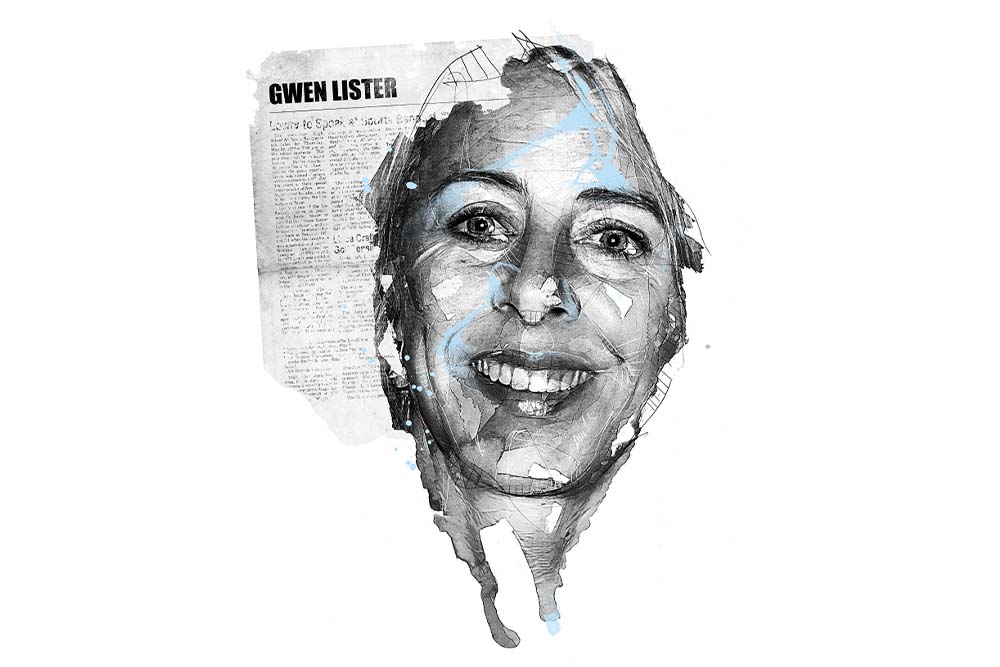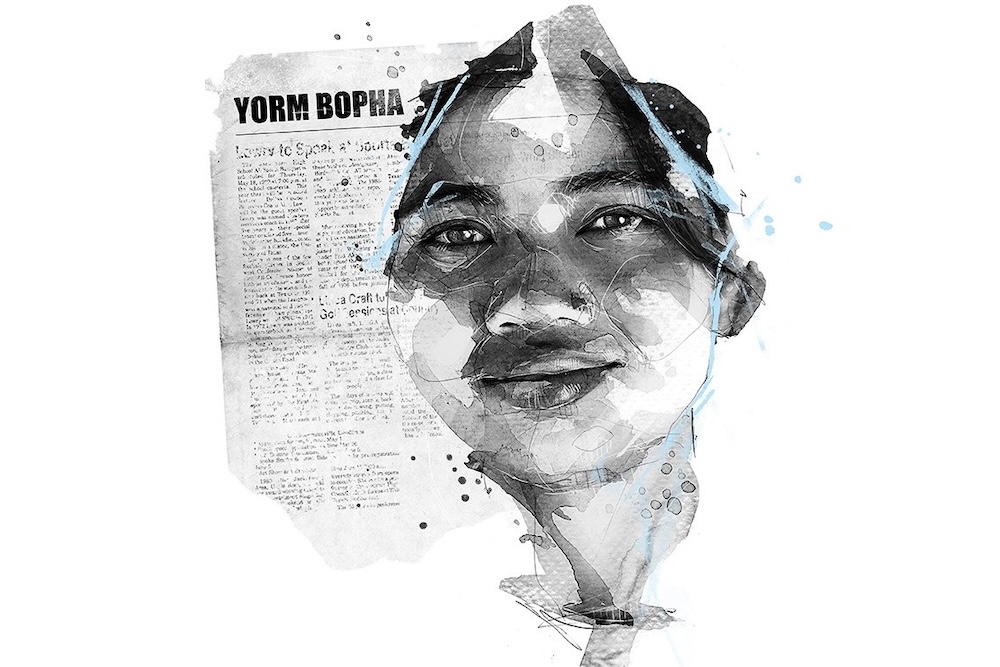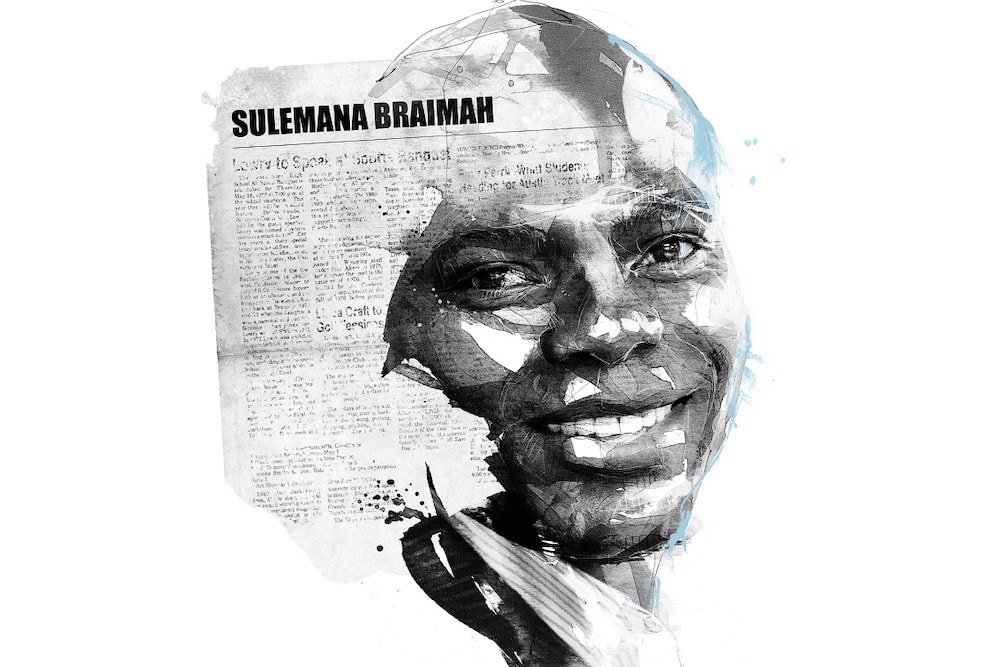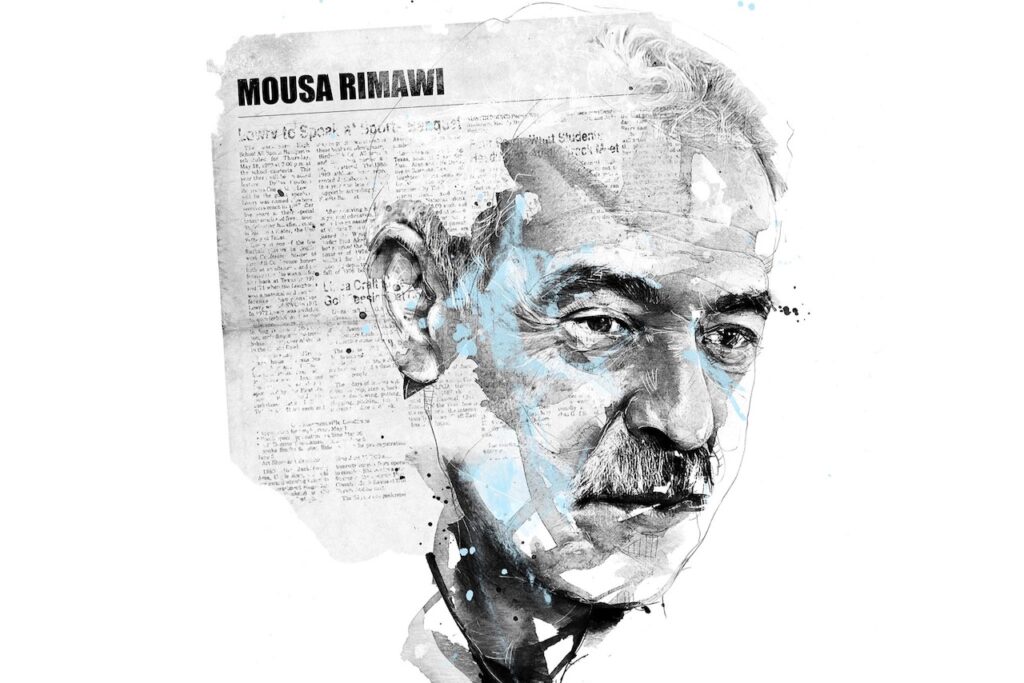From the moment she entered the world of journalism, four decades ago, award-winning journalist and rights activist Gwen Lister, founder and editor of The Namibian, attracted the ire of those who felt their authority and abuse of power coming under her publication's intense scrutiny.
"Corruption thrives in the darkness and a pervasive atmosphere of secrecy, and inequality in terms of lack of access to information is also a form of poverty."
Gwen Lister is regionally celebrated for being one of the founding members of IFEX member the Media Institute of Southern Africa (MISA), which was officially established in September 1992. The idea of a regional body promoting an “independent, pluralistic and free press” was first conceived in 1989, when journalists from the southern African region met in Botswana to discuss “The Right to Inform and be Informed”. Gwen Lister then co-chaired the 1991 UNESCO conference on Free, Independent and Pluralistic African Media, which had the Windhoek Declaration as one of its results.
Meeting against a backdrop of harassment of journalists and restrictions on citizens’ rights to free expression by governments in the region prompted Lister to conceptualise a regional movement.
Lister has been verbally and physically abused, jailed on three separate occasions, threatened with death and attacked. A year after Namibia’s independence, South African military intelligence tried to have her assassinated. Her strong stance and commitment to freedom of expression and media freedom has never wavered.
Her most notable accomplishment as a journalist is the establishment of The Namibian in 1985 – during apartheid, when Namibia was still under South African rule. At the time she was the first female editor and trustee of a news publication on the African continent. It was an honour she held for several decades.
The Namibian was established to counter propaganda from the apartheid South African state machinery. As the first independent paper in the then South West Africa, it also contributed to providing an alternative narrative as the newspaper continued to expose human rights violations by South Africa’s occupying forces against members of SWAPO. For this reason, it was regarded as anti the South African government, and perceived to be supporting SWAPO – the liberation struggle movement of the time.
Her life and her journalistic career, matured against the backdrop of historical events that led to Namibia’s independence, is perfectly captured in her memoir, Comrade Editor: On Life, Journalism and the Birth of a Nation, which was virtually launched in June 2021.
Lister fought fiercely to protect her own integrity and that of the paper she founded. The Namibian, with the catchline – “Telling it like it is” – continues to be one of the most widely read and respected publication in the country and is seen by the majority of its consumers as a paper for the people.
For retaining independence in a partisan and politically charged landscape, Lister, her staff, and The Namibian were attacked on numerous occasions. A decision was taken to reinforce the glass around the building to protect the occupants from shooters and bombers. In 1988, a white extremist vigilante group – the Wit Wolwe (White Wolves) – firebombed the offices, put teargas in the air conditioning system and issued death threats against the staff.
Throughout these assaults, Lister and the journalists who worked for her were committed to a single purpose: to make sure the paper was published and out on the streets.
There was very little reprieve after independence, when SWAPO came into power. Ironically, she was attacked by ruling party loyalists for her brutally honest criticism of abuse of power. Ten years later, in December 2001, the cabinet issued a directive banning all advertising by governments in The Namibian.
Along with the brickbats have been bouquets. Lister has been recognised locally, regionally and internationally for her commitment to protecting freedom of expression and media freedom in Namibia and on the African continent. In 1992 she received an International Press Freedom Award from the Committee to Protect Journalists. Three years later she was awarded the Nieman Fellowship at Harvard University. In 2000, she was named one of the International Press Institute’s 50 Press Freedom Heroes. She has the honour of being the first recipient of the International Women’s Media Foundation’s Courage in Journalism Award in 2004.
Over the years she has served on the advisory board of the International Consortium of Investigative Journalists and the advisory committee of the International Women’s Media Foundation African Women’s Media Centre. At home she was recently awarded the Windhoek Declaration Award by the Editors’ Forum of Namibia, for her over 40 years of contributions to the media industry.
In 2011 she officially handed over the editorship of The Namibian to Tangeni Amupadhi, and is the founding chairperson of the Namibia Media Trust, which owns the newspaper, and continues to work on the promotion of media freedom and excellence in journalism.
Lister was celebrated with a lifetime achievement award for her notable contributions to journalism at the 2024 All Africa Media Leaders Summit, held in Nairobi, Kenya. The summit, which took place in May, brought together influential media personalities, policymakers, and advocates to discuss ‘Re-engineering African Media.’ The focus was on modernising media practices to suit the evolving needs of Africa, and the summit paid tribute to Lister’s steadfast commitment to press freedom with this distinguished honour.
Although Lister was unable to attend the ceremony, she delivered a compelling message regarding the persistent nature and present challenges facing journalism. She pointed out critical issues such as the assault on press freedom, the rise of false information, and diminishing public trust. Highlighting the resilience and pioneering role of African journalists, she alluded to their significant work in creating the Windhoek Declaration in 1991.
Illustration by Florian Nicolle




